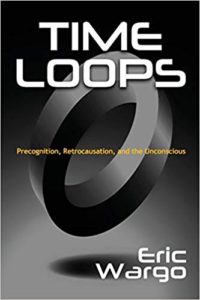The Secret History of the English Language
Reckoning the origins of words is a politically significant exercise, and etymologies, wherever and whenever they are from, are notoriously full of shit. They always reflect someone’s political vested interests or fantasies of “who was here first.” Yet somehow the old dons who gave us our etymological bible, the OED, have always remained above suspicion. These are tweedy respectable old guys who don’t go in for politics or fantasy (well, ahem, besides J.R.R.). And good god, what a huge dictionary it is, with such teeny tiny little words. It must all be true.
If a mysterious, snarky personage named M.J. Harper (about whom all is known is that he “lives in London”) has anything to say about it, the last hundred-odd years of English etymology, philology, archaeology, and history are due to be swept aside, and with it the hoary origin myth of the English language that we learned in school. The Secret History of the English Language is a bracing slap-in-the-face for anyone who sort of cherishes that myth. But despite my geeky love of English philology a la Tolkien and the summer I spent trying to learn Anglo-Saxon so I could read Beowulf in the original, I have to give it to this guy: I think he could be on to something.
At first, Harper’s “applied epistemology” sounds like the puffed-up ‘methodology’ of a manic-depressive paranoid who either never finished his PhD or, despite finishing it, works in a used bookstore, and either way has nursed a grudge against his professors for twenty or thirty years. As a science editor I get sent a lot of self-published books from the pseudo-science and pseudo-academic fringe — heck, I consider myself part of that fringe — so I know the signs of this mentality. But I don’t think Harper can be reduced to that rubric. He appears to be a smart guy, and rigorous enough in his thinking to be taken seriously, despite his flip tone. And a bit of snooping around on the internet reveals that ideas that harmonize well with his theory are emerging from archaeology (Win Scutt) and genetic studies (Oppenheimer) as well. I don’t know, but a bona fide paradigm shift might be in the offing.
Basically, Harper’s idea is this: English did not evolve out of Anglo-Saxon, as we were all taught. There’s no evidence this happened, and moreover, such an account of the origins of a major language runs counter to everything we know about language everywhere else in the world: It’s a remarkably inert thing. It doesn’t evolve quickly, and people don’t just throw an old one out to adopt a new one. History also offers no real evidence for the cherished English creation myth. There’s no evidence for the “Celtic” language originally spoken in the areas that were taken over by the Anglo Saxons, for example.
Harper’s method boils down simply to the application of Occam’s Razor: The simplest explanation is probably correct. It is far more likely that what the natives were speaking when the Normans arrived, what they were speaking when Hengest and Horsa arrived, and what they were speaking when the Romans arrived, and what they were probably speaking even back when Stonehenge was built, was pretty much what they speak now. Middle English is not an intermediate form between Modern English and Anglo-Saxon (mis-named “Old English”); it’s basically Modern English spelled differently, simply because it reflects the awkward beginnings of English as a written language. Anglo-Saxon, on the other hand, was a related but foreign language spoken by the foreign conquerors, which duped everyone into thinking it was the original form of English only because it happened to be written down before English ever was (though not very often or frequently—Harper even suggests Beowulf is a forgery, although I don’t think such a detail is necessary to his argument). Likewise, the Normans didn’t infuse English with its “Latinate” component. That was part of English all along.
Migrations and incursions and sweepings-away-of-whole-peoples are far more stimulating to the mind than glacial inertia. That’s why myths are full of such upheavals. Thus, how much more exciting to say that the word “beef” was imposed by our Norman conquerors after 1066 than to say that the word “beef” evolved from … well, “beef.” According to Occam’s Razor as, um, wielded by Harper, the Anglo-Saxons and Normans, like the Romans before them, didn’t do anything to the language. In both cases the “doing to” had been done long, long earlier, much more slowly, and in the opposite direction. Because English, he suggests, is really the mother of the tongues that have until now been thought to be its ancestors.
As I understand Harper’s parsimonious schema, something like English was originally spoken all over the continent, giving rise to German and the Scandinavian languages in the north as well as French and the Latinate languages to the south. (I’m ignoring for simplicity the Celtic languages that held fast all up the Atlantic seaboard, including Wales, Western Ireland, and Western Scotland.) So despite what you were told in school, “beef” was original and boeuf descended from it. Which has gotta hurt, if you’re French. The consolation for the French is that theirs is the mother of the Latinate tongues, including Latin (which originated as an artificial, written shorthand—the reason those inscriptions are so succinct). The fact that English only survived in its more or less original form on an Island makes a lot of sense: Events unfolding on the continent accelerated linguistic change. Islands often preserve older biological species even after their continental counterparts have gone extinct or been replaced, so why not languages?
Harper doesn’t point to much data, unfortunately; he’s more interested in uncovering gaps and anomalies and showing how people have imposed their own, convoluted stories to cover them up or obscure them. And the Occam’s Razor explanation sounds boring, at least at first: It requires no invasions, conquests, genocides, or any of the other colorful affairs of history. But for those whose academic reputations aren’t at stake, the implications of Harper’s theory would indeed be pretty amazing. How cool to think, for example, that English could be the oldest Indo-European language in Western Europe—a direct link to the mind and culture of, for example, the people who built Stonehenge?




Eric if we spoke in such a way that utilized different parts of our mouths (throat, tongue front and very back) I ponder if it would affect our taste for food, hunger, senses, and overall physiological development. I think our will to survive determines our vernacular and therefore suggests to me the strongest influence. Once a community is established these traits deeply root who people become (their purpose in life).